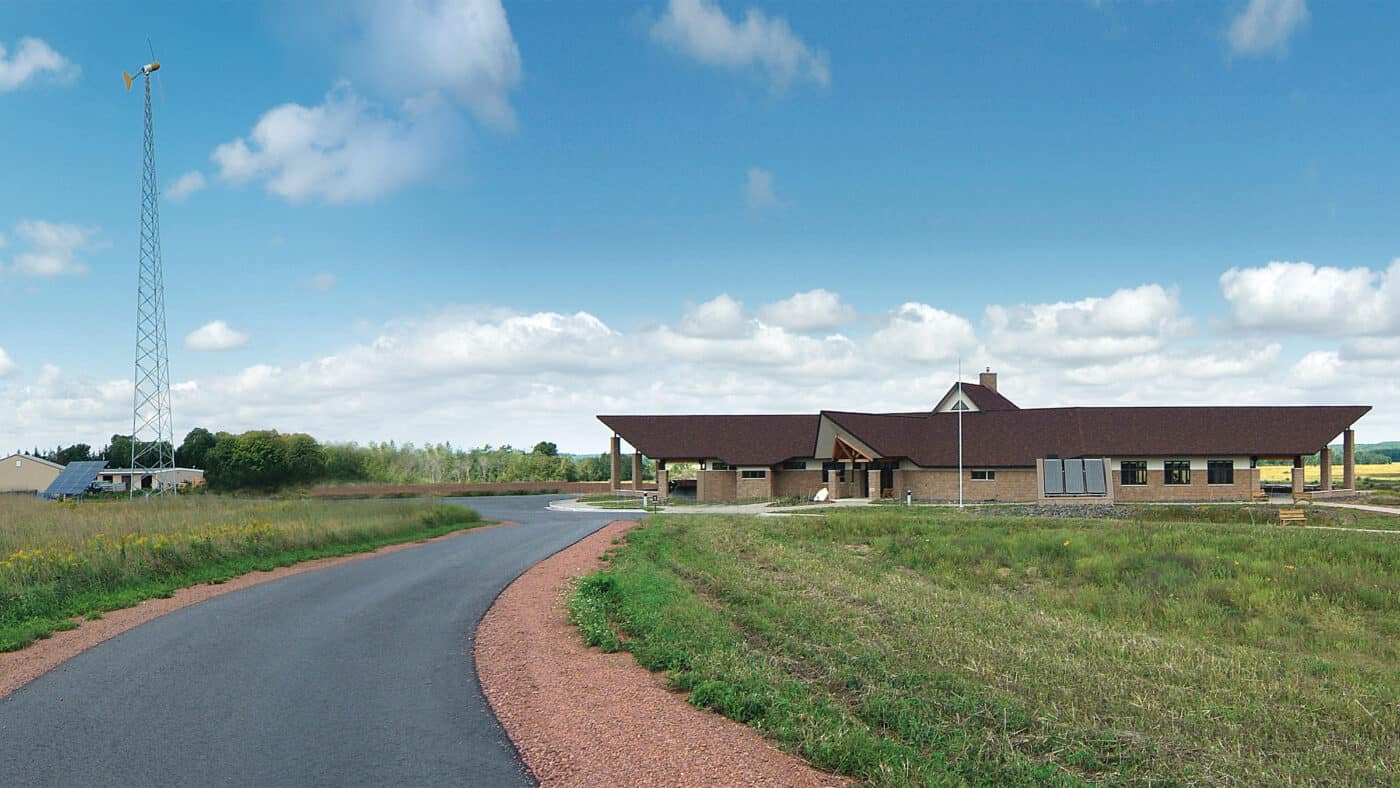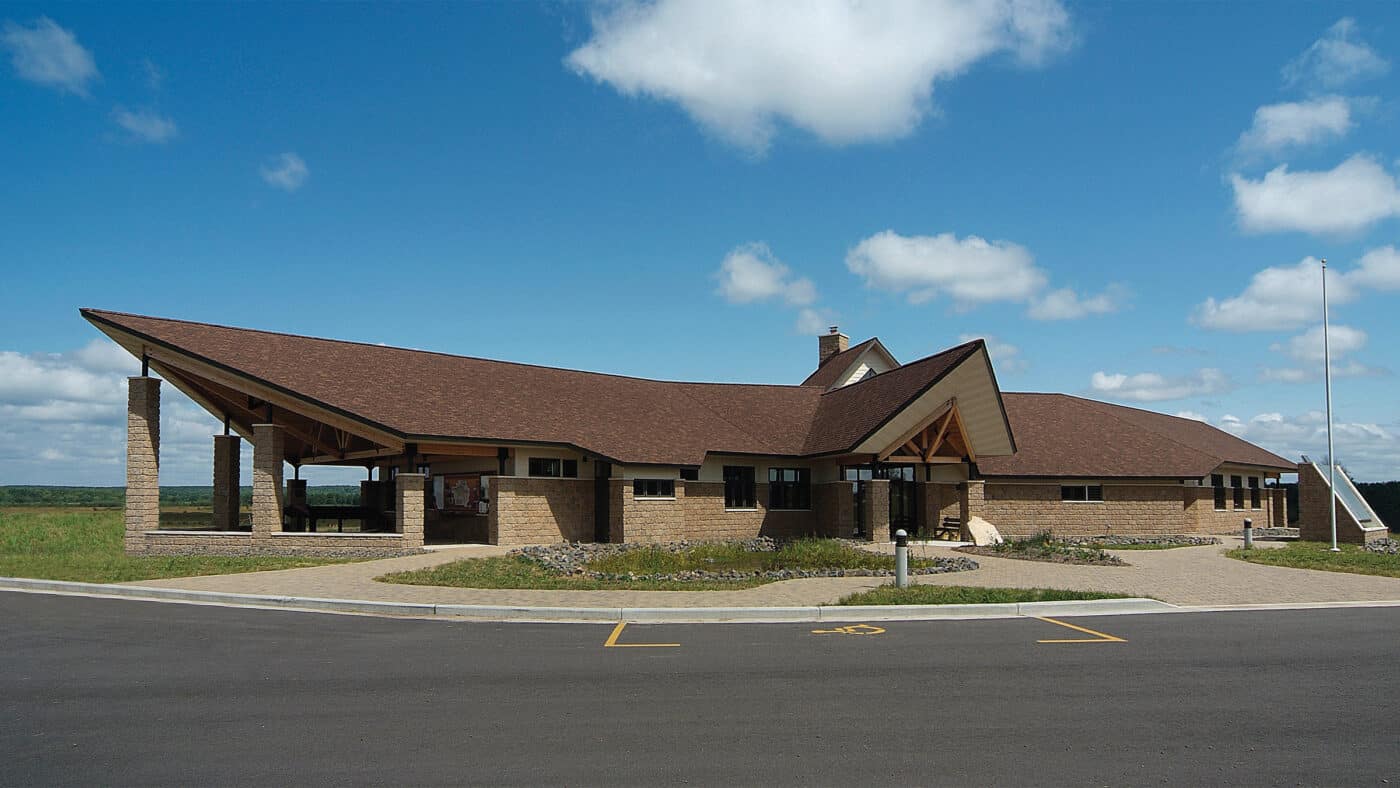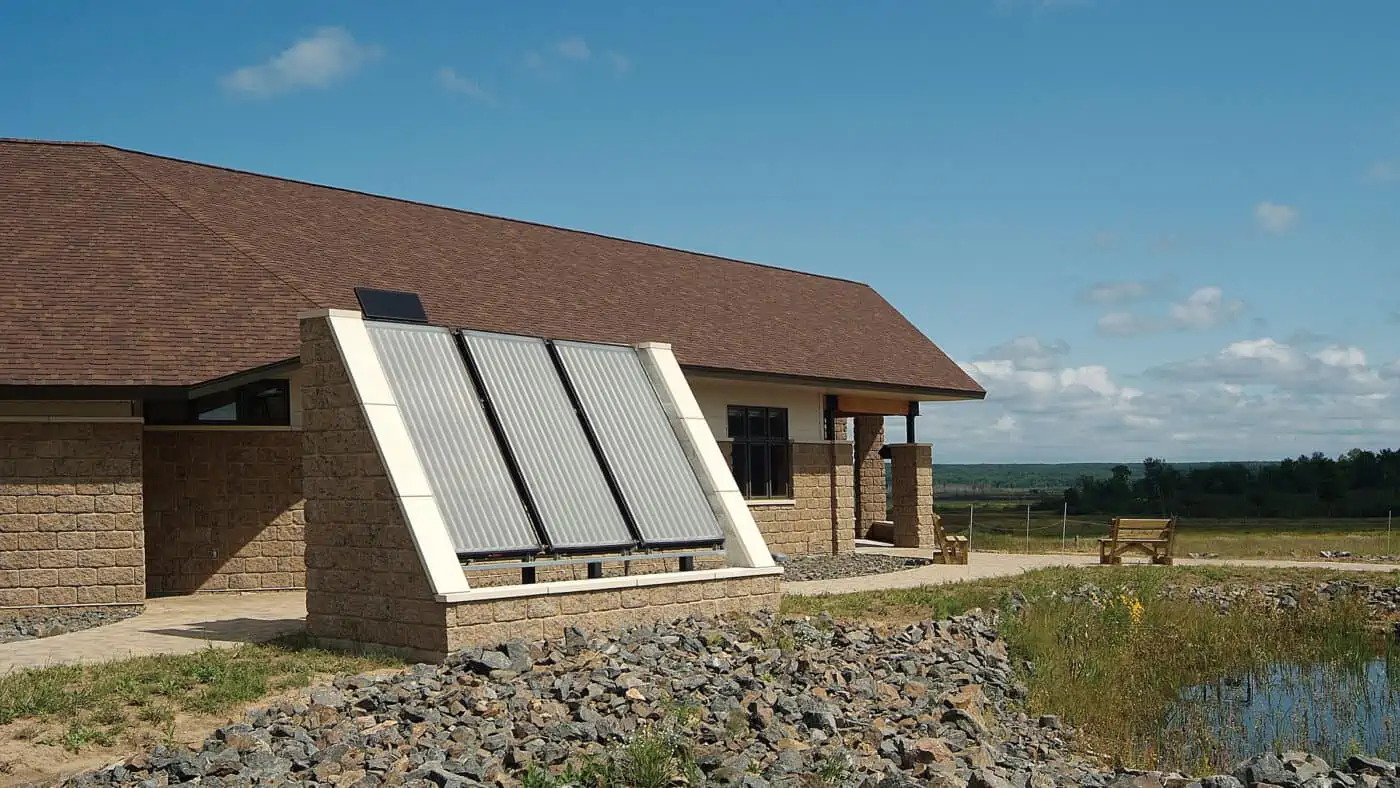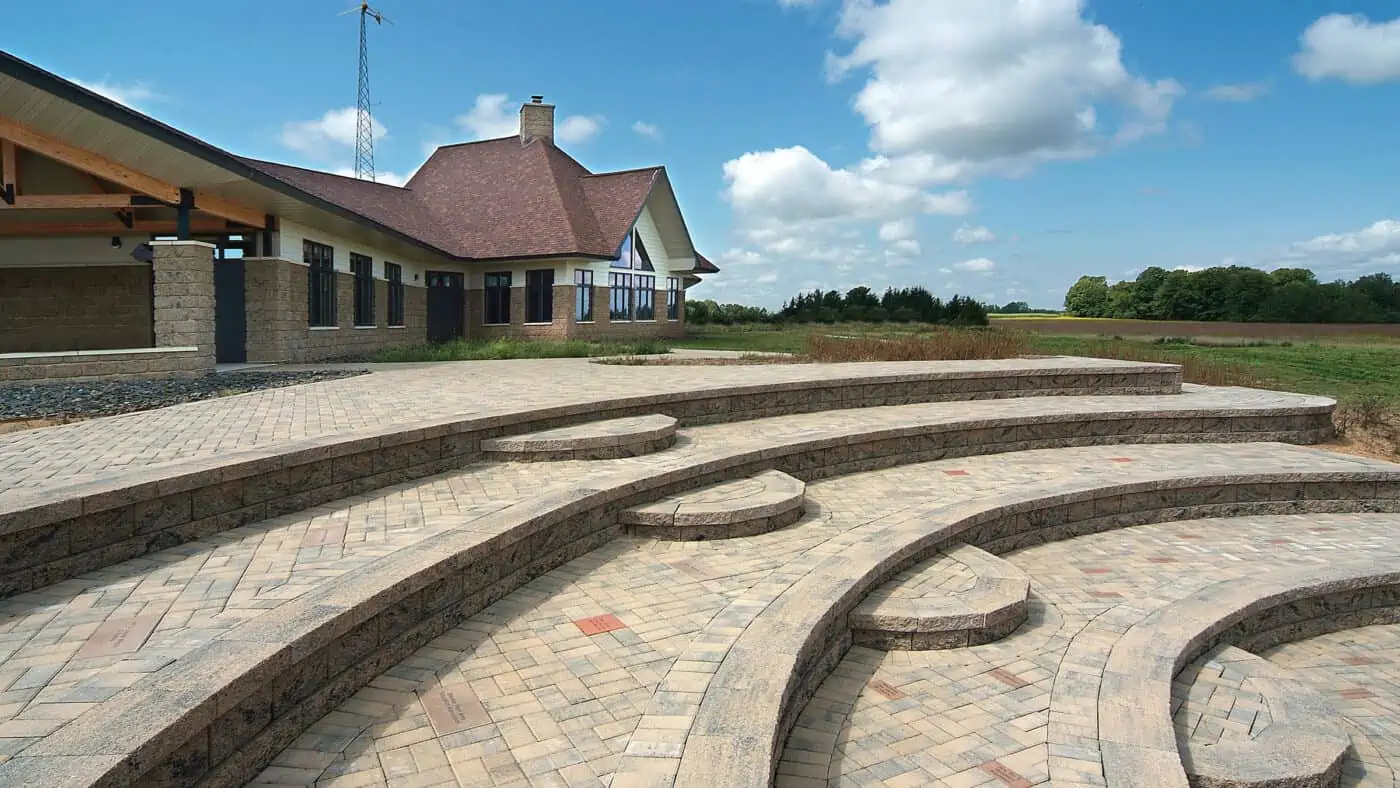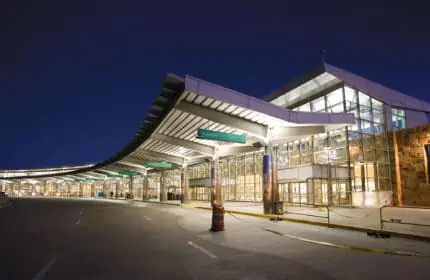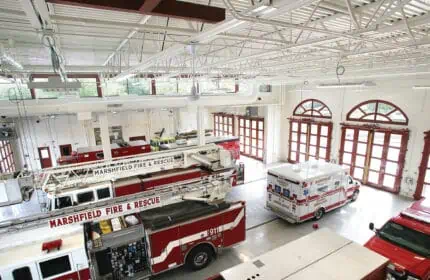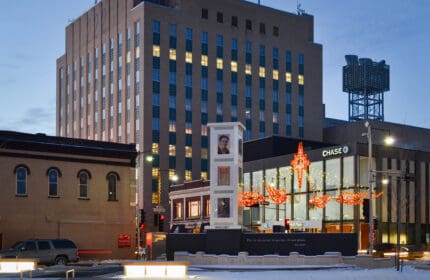Mead Wildlife Area Headquarters & Education Center
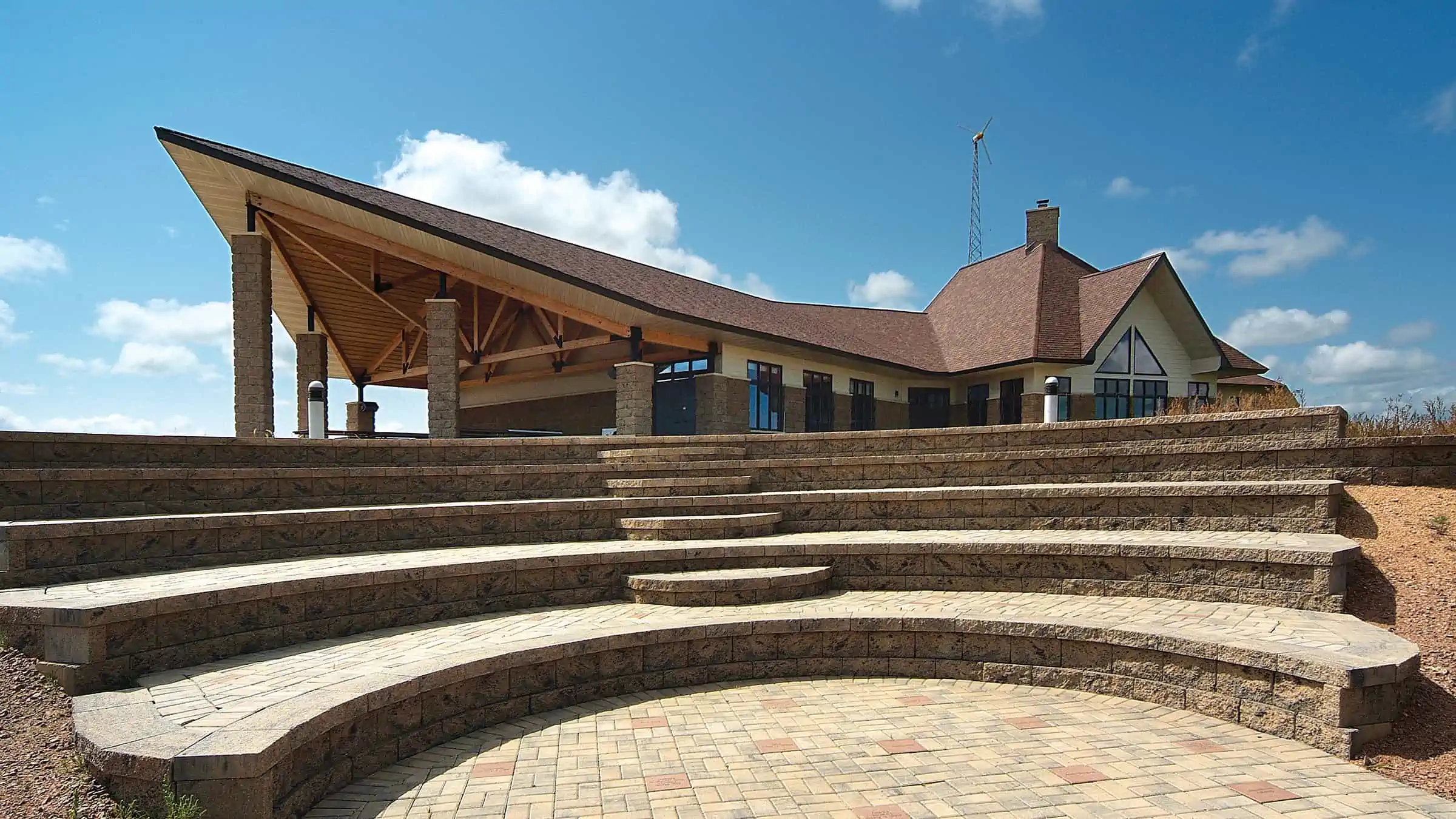
Wisconsin’s first publicly-owned LEED–Platinum-certified building, the Mead Wildlife Area Headquarters and Education Center, serves as both the local DNR headquarters and a visitor center for the 33,000-acre George W. Mead Wildlife Area. The single-story, 6,208 SF building is a case study in high-performance building features, including renewable energy systems, such as wind power generators, solar panels for domestic hot water, ground-source geothermal heat pumps and wood-fired radiant space heating.
One of the primary energy sources is the facility’s wind turbine: a “grid-tied” 10 kw Bergey XL turbine on a 120’ free-standing tower, with an estimated annual energy output of 8,400 to 10,800 kwh/yr. It uses the utility grid as its “battery storage,” purchasing energy when needed and selling electricity to the utility when the generated amount exceeds the building’s needs. The toilets and sinks contain mini-generators to create electricity that is stored in batteries to power the fixtures.
Beyond the energy systems, sustainability was a focal point of its construction, using recycled items such as tiles made from crushed bottles, desktops and counter surfaces milled from compressed sunflower hulls fused in resins, carpeting made from natural fibers, and paints free of volatile organic compounds. In total, roughly 95% of the construction waste was recycled for other uses.
Mead Wildlife Area
Milladore, Wisconsin
Thomas Brown
- Construction Manager
- Sustainable/LEED-certified
New Construction
6,208 SF
Platinum
MARKETS
Municipal and Public Sector
Corporate Office
Commercial
Project Highlights
- Originally targeting LEED–Silver certification, the project exceeded that goal and became the first publicly-owned building in Wisconsin to achieve LEED–Platinum status, as well as earning Energy Star Building certification from the EPA.
- The project received the Wisconsin Governor’s Award for Excellence in Sustainable Design and Construction.
- Approximately 95% of the building’s construction waste was recycled and repurposed.
